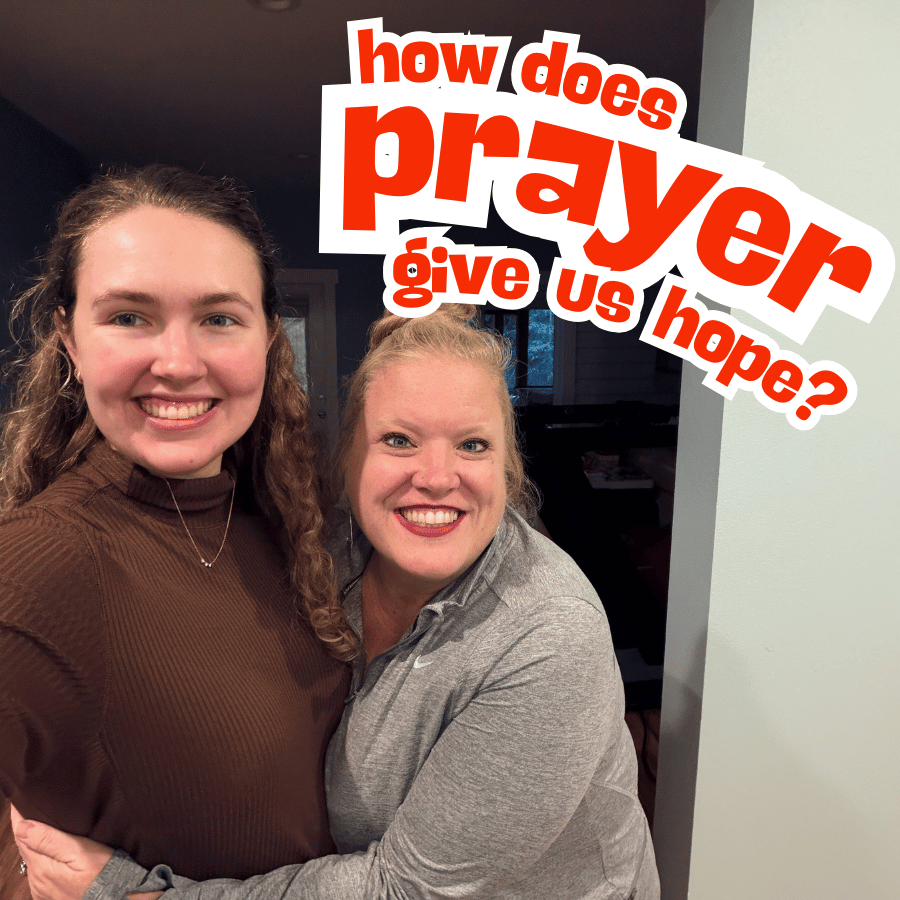Prompts and Practice
Written by Emma McCoy
3 minute read
A surprising amount of life hinges on little promptings. Stick with me on this. Have I ever led you astray, dear reader? (That’s a rhetorical question, don’t answer it).
Prompting, repetitive phrasing, and habitual actions do a lot of work in our everyday lives that we might not even be aware of. Here’s the most foundational example I can think of: my dad has a way of saying my name that gets my attention anywhere we are, whether it’s a crowded theme park, noisy street, or busy city. All he has to do is raise his voice slightly and say “EMMA BEAR” in a certain way (almost like a melody) and BAM, he’s got my attention. It’s the same way for my brothers; if you asked, I’d be able to tell you the way he says their names too—it’s always the same, and it always gets our attention. If I’ve wandered off in the grocery store and I’m reading a magazine somewhere in a closed checkout aisle, all dad has to do is say my name in his particular way, and my head snaps up. It’s a prompt that tells me to head back, without dad having to say let’s go already or where are you? I hadn’t really thought about the way that my dad has prompted me while he’s raised me, but I have to say it was pretty darn effective. I’m twenty-three years old and if I heard “EMMA BEAR” in that tone of voice it doesn’t matter what I’m doing—I’m looking up.
I’m teaching a classroom for the first time this year.
It’s been quite the learning curve, to say the least, but I’ve found that I do a lot of prompting myself. I walk into my classroom about two or three minutes early, set up my slides and put my notes out, and then the moment the clock reads 8:30am I say, “Good morning, writers.” This is the prompt for my students to stop chatting, put their phones down, and listen up, because class has begun. I haven’t explained this to them, but this prompt works to start class efficiently and to tell them that regardless of their major, they are writers. I end class in a similar way. I go over the homework that’s due, and then I say, “Go with God.” That signals that class is over and they’re free to get up (and this sends them with a blessing). I don’t know how aware of it they are, but I caught one student last week kind of hovering in her chair, clearly waiting for me to say it so she could leave.
Perhaps one of my favorite promptings for my class involves my observation hours. As a brand-new teacher, I get observed every two weeks by my supervisor. As a way to let my class know to be on their best behavior in a way that still treats them like the adults they are (albeit very, very young adults), I’ve started calling my observation days “Felony-Free Fridays,” so if you have any plans to commit a felony in class, please save it for another day.
I get a few laughs for that one. Most of the time they don’t laugh at my jokes, but I understand. Nothing’s really that funny at 8:30am.
All that to say, the repetitive promptings, habits, and sayings in our lives might come from others, and they might come from ourselves. But they do a lot of work in making sure we’re on track and keeping to behaviors that can feel automatic. They are gentler than a correction, and kin to the check-in; most accurately, they are prompts, ready to go to affirm who we are and whose we are. I am Matt’s daughter, and I belong with him and my mom. My students learn from me, and obey my instructions and the rules of the classroom to gain knowledge.
It’s so easy to get distracted.
To wander off in a grocery store, or scroll on your phone in class (or at work). It’s easy, in fact, to step off the faithful path and start thinking and acting like other things are much more important than becoming like Jesus. So when it comes to practicing things as a church, like, say, loving our political enemies, how can we use a prompt to guide us back to why we’re doing what we’re doing, doing it over and over again until it becomes automatic? Until we hear it the same way we’d hear a parent calling for us or a teacher signaling class is over?
If our prompt is “That’s on the faithful path” and it’s used to help ground us to our mission, acting as a way back during difficult practices (such as, say, loving our political enemies), then we’re going to need to practice it.
And not just once or twice. My students responded to my prompting over consistent practice as we met three days a week. My dad took my entire lifetime prompting me. As a community, we’re going to need to get some reps in if “That’s on the faithful path” is going to work as a prompt to guide us back to why we’re doing what we’re doing.
I would argue very strongly that there’s value in it. So before I lose you with the whole “practice” thing, please know that I’m not trying to add another thing onto your ‘habit-stacking’ or ‘wellness routine.’ This kind of prompting isn’t something we do for ourselves. It’s something we do together so that as we do hard things (like loving our political enemies) we don’t lose sight of walking along the faithful path together, trying to become more like Jesus.
If we consistently practice this, saying “That’s on the faithful path” in response to activities, small group discussions, common observations, and truths spoken over us, we can observe how over time it becomes easier to come back to our mission and harder to outright reject something because it’s uncomfortable.
But what does this look like when the rubber hits the road?
Truthfully, I don’t have a complete answer. This is something we’re going to have to find out for ourselves as we begin to practice our prompting in community, at church. However, I do believe with my whole heart that there is so much value to be found in it, because when things get hard it can be so difficult (nigh impossible) to just think or work your way out of it (whether “it” is uncharitable feeling or self-isolation or worse). It can be a whole lot easier to hear your name called with love and look up.
There you are.









3-minute read